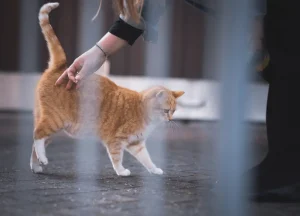Onsior, generically known as robenacoxib, is a non-steroidal anti-inflammatory drug (NSAID) formulated for use in cats and dogs. As an NSAID, this medication reduces inflammation and provides significant pain relief, making it a standard treatment for various chronic and acute disorders.
Onsior for Cats: Uses

Post-Operative Pain
Onsior is commonly prescribed for cats recovering from surgeries such as spaying, neutering, or dental procedures, helping to alleviate pain and ensure a smoother recovery.
Relieving Arthritis
For older cats suffering from arthritis, Onsior effectively reduces joint inflammation, improving mobility and comfort.
Other Painful and Inflamed Disorders
Onsior has shown efficacy in managing pain and inflammation associated with soft tissue injuries and infections.
Dosage and Administration
Recommended Dosage
- Dosage: 1 mg/kg (0.45 mg/lb) once daily for up to three days.
- Always follow your veterinarian’s prescription for optimal results.
Administration Tips
- Onsior can be administered with or without food.
- Use only the tablet form specifically designed for cats.
- Do not exceed the prescribed dose, as overdosing may lead to adverse effects.
Common Side Effects of Onsior
While Onsior is generally well-tolerated, some side effects may occur, including:
- Vomiting or diarrhea
- Loss of appetite
- Lethargy
- Changes in kidney or liver values (rare but serious)
If you notice any of these signs, consult your veterinarian immediately.
Onsior Precautions
- Not for Prolonged Use: Onsior is designed for short-term pain relief only.
- Contraindications: Cats with pre-existing kidney or liver conditions should avoid this medication.
- Monitor Closely: Ensure your cat is drinking enough water and eating as usual during treatment.
Why Choose Onsior for Cats?
- Specifically formulated for cats’ metabolic requirements.
- Easy-to-administer tablet form.
- Provides rapid and effective pain relief.
Apples for Cats: A Healthy Treat?

Are Apples Safe for Cats?
Yes, apples are safe and non-toxic for cats when offered in minimal amounts. They can serve as a low-calorie, healthy treat. However, caution is needed as parts like seeds and stems contain cyanogenic compounds, which are harmful.
Benefits of Apples to Cats
Low-Calorie Snack
Apples are a healthier alternative to calorie-laden cat treats.
Rich in Vitamins
Apples contain vitamin C and fiber, which can aid digestion and overall health.
Hydration
With high water content, apples can help keep your cat hydrated.
Risks of Feeding Apples to Cats
Toxic Seeds and Stems
Apple seeds and stems contain cyanide, which is toxic to cats. Always remove these parts before serving.
Digestive Issues
Excessive apple consumption can lead to stomach upsets or diarrhea.
High Sugar Content
Apples are naturally high in sugar and should only be given as an occasional treat.
Serving Apples to Cats
Wash Thoroughly
Ensure all chemicals or dirt are washed off the apple.
Peel and Slice
Remove the skin, seeds, and core. Cut the apple into small, bite-sized pieces.
Offer in Moderation
Serve one or two thin slices occasionally to prevent overconsumption.




